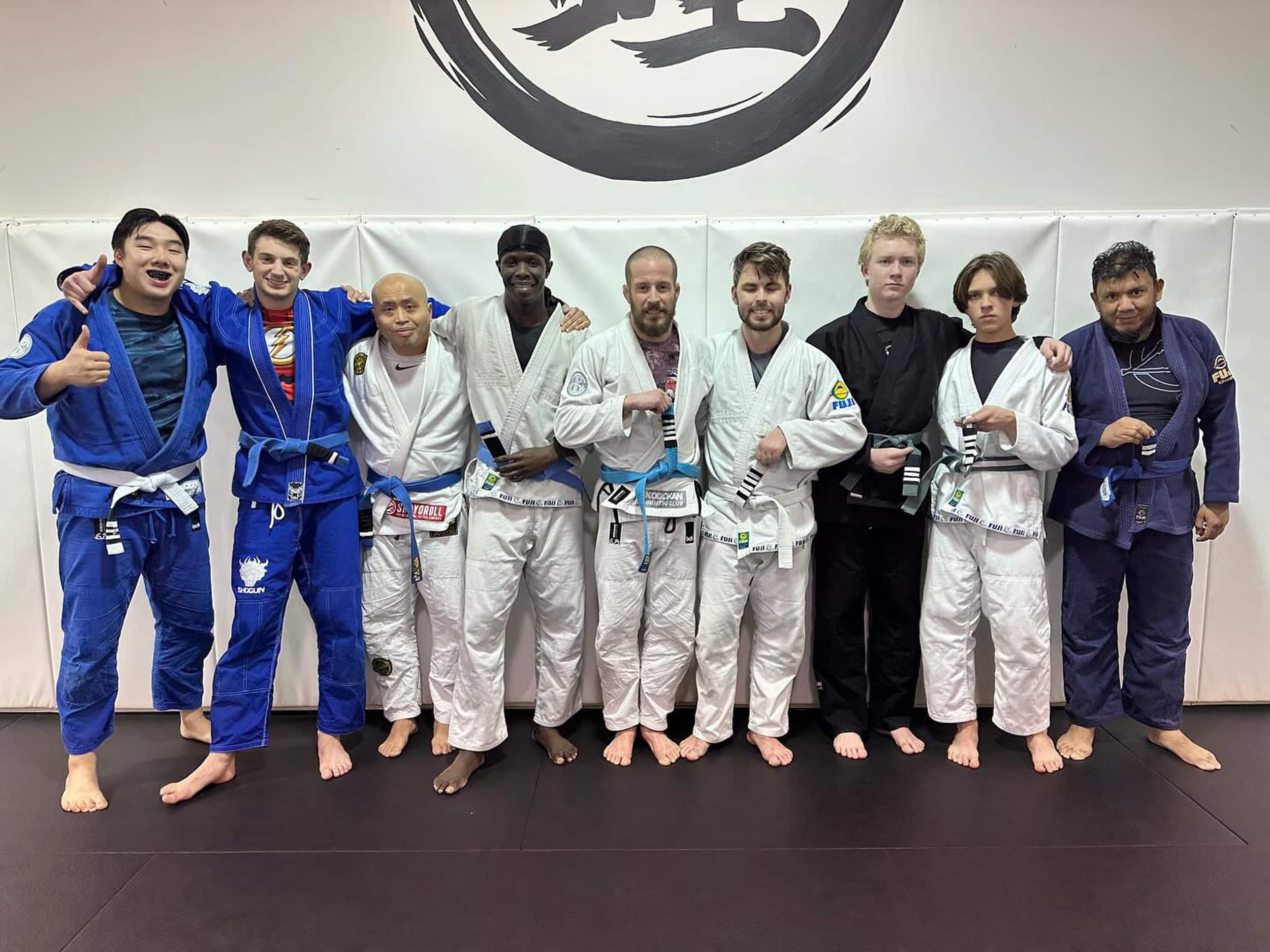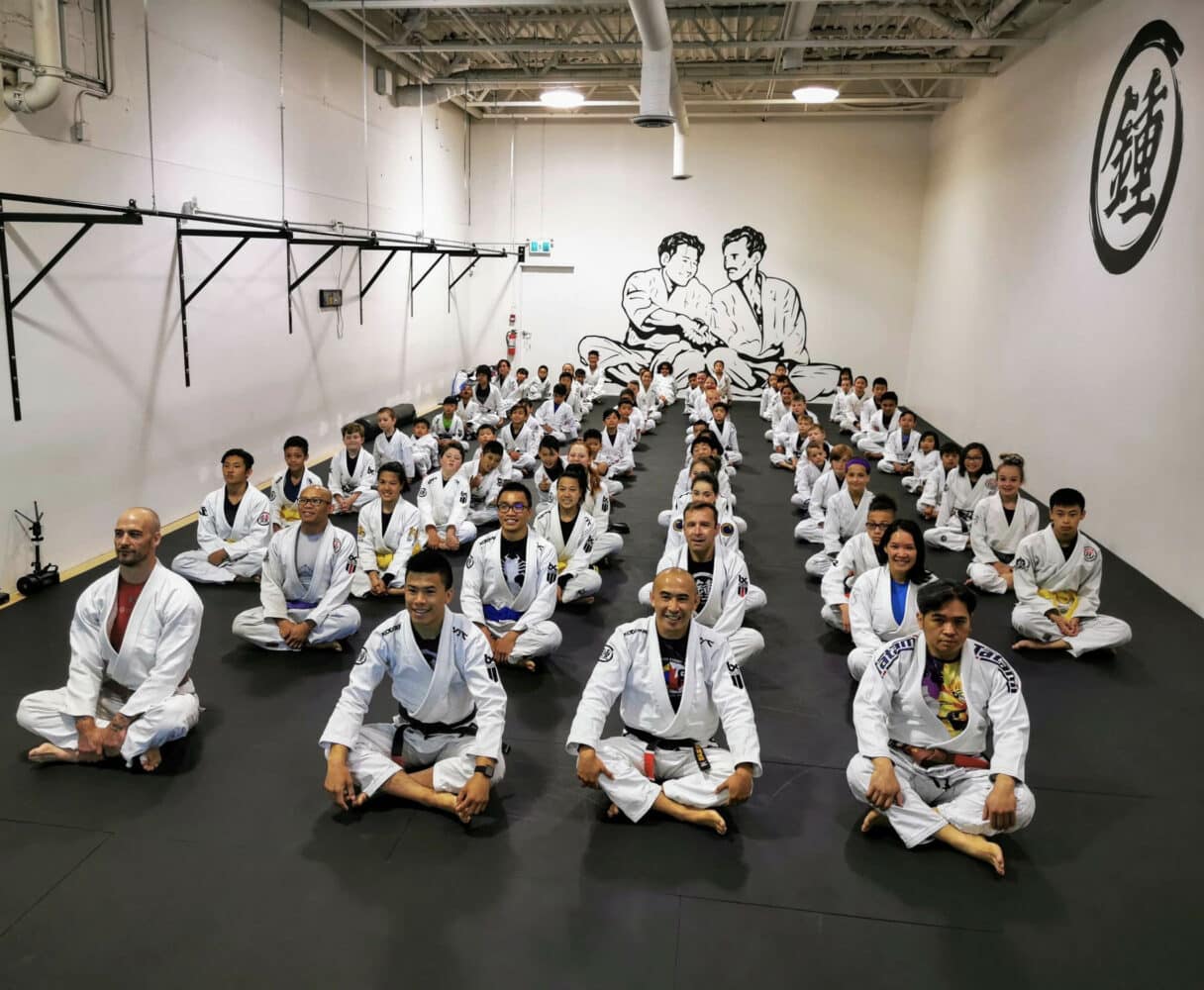Jiu Jitsu Philosophy
The philosophy of Jiu Jitsu – “There’s more philosophy in Jiu-jitsu mats than in any Ivy League school in America” – Renzo Gracie
The list of accomplishments of Master Renzo in the realm of Jiu-jitsu is almost too long to compile, but probably his greatest accomplishment is who he is as a person.
Anyone who hears Master Renzo speak, even briefly, whether it is in person or through an online video, is left with an unmistakable impression that he is someone special.
One possibility is to see Master Renzo as someone who is the end product of a life transformed by the martial art of Jiu-jitsu.
What then did Master Renzo mean when he said there is more philosophy on Jiu-jitsu mats than in any Ivy League school?
- The first thing to realize is the philosophy of Jiu-jitsu on the mats is directed towards the practical side of philosophy.
- The many branches of philosophy in Ivy League schools lead to many areas of specialized knowledge, but they neglect the ordinary areas that have applicability in our day to day.
- Practical philosophy is geared towards helping us overcome the ordinary struggles we face in our everyday lives.
Jiu Jitsu Philosophy: Everyone in life is on their own journey, and everyone will face unique challenges and moments of adversity.
Jiu-jitsu helps individuals by transforming us in a way that helps us better deal with adversity. There are probably many unique stories about how Jiu-jitsu has assisted individuals, but there are also many problems people have in common.
I believe there are at least three important characteristics of the philosophy of Jiu-jitsu that have general applicability to almost everyone.
One: Jiu-jitsu makes us strong
Of all the sports we might choose, it’s harder to imagine a tougher sport than Jiu-jitsu. As a grappling art, hard physical contact is Jiu-jitsu’s essential feature.
To some extent Jiu-jitsu simulates a life or death struggle with an opponent.
The objective of a Jiu-jitsu fight, whether in a practice “roll” or in competition, is to defeat your opponent. This can be accomplished by chocking your opponent to unconsciousness, or until he or she submits, or through putting your opponent in a submission hold where he or she must literally “tap out” or risk bodily injury.
Sometimes we can also win a match through positional dominance, but the struggle to achieve this is always vigorous and intense. This is because your opponent is also attempting to defeat you at the same time you are attempting to defeat him or her.
The natural consequence of regularly practicing a sport which simulates mortal combat with a live reacting opponent is that our bodies become very strong over time. It’s not just our bodies that benefit from Jiu-jitsu, our minds also naturally become calmer, more focused, and tougher.
In Jiu-jitsu brute strength is subservient to knowledge, skill, and technique. An important aspect of Jiu-jitsu is therefore to constantly learn and improve the way we execute and defend techniques.
- This knowledge is not abstract but includes learning to be be able to move our bodies the right way at the right time.
- You can’t fake practical knowledge in Jiu-jitsu. You either are able to execute or defend a technique or not.
- The natural consequence of engaging in a martial art that requires constant learning and application is that over time both our bodies and minds become much sharper and stronger.
Two: Jiu-jitsu makes us humble
Another benefit if Jiu-jitsu that is important but easy to overlook is the humbling effect of Jiu-jitsu. If you practice Jiu-jitsu in any legitimate dojo with a legitimate black belt instructor. You are in the presence of literally thousands of hours of learning, struggle, blood, sweat, and tears dedicated to Jiu-jitsu.
If you multiply this learning by all the other black belts, brown belts, purple belts, and all the other practitioners in your school. You realize that you are only a small part of a dedicated community which works hard every day to grow within the sport of Jiu-jitsu.
The other thing that is humbling about Jiu-jitsu is that no one starts as a black belt.
Everyone who puts on a kimono starts as a white belt. Beginners initially naturally feel overwhelmed and disheartened by their lack of knowledge, skill, and strength. Even as we progress in our knowledge and skill other practitioners are also advancing. So we always learn to keep our ego in check. If we get overconfident, we cannot learn.
No one in Jiu-jitsu is invincible, we all sometimes get caught and must tap out.
Tapping is humbling and builds character. It is literally a physical expression of humility. It is by letting go of ego and tapping often that practitioners can hope to progress in Jiu-jitsu. Tapping is a way of acknowledging our need to improve, which is the first step in a learning journey.
Learning real humility may not seem like a big deal, but it is a hard trait to acquire.
Many of our problems in life are problems we cause ourselves because of our large egos. Acquiring a level of confidence that is neither too low nor too high is not an easy balance to achieve. Constant learning in Jiu-jitsu gives us a true picture of both our strengths and weaknesses. It builds true self-knowledge as opposed to self-defeating ego.
This precious knowledge acquired on the mats also carries over to all other aspects of our lives.
Everyone in theory wants to be humble. But true humility only comes with self-knowledge which requires hard lessons over long periods of training such as occurs on the Jiu-jitsu mats.
Three: Jiu-jitsu makes us happy
When you walk into a legitimate Jiu-jitsu dojo you will notice that there is a level of seriousness and respect. Which flows from the fact that Jiu-jitsu is a traditional martial art that originally was practiced my samurai in feudal Japan.
Despite the serious side of Jiu-jitsu, which is also important. There is also a very fun and social side to Jiu-jitsu. Everyone in a dojo is on an individual Jiu-jitsu journey. But everyone is also working towards a common goal of becoming the best version of themselves they can be.
Most good Jiu-jitsu dojos are therefore supportive environments where everyone is putting their best foot forward.
Because in Jiu-jitsu you have to train so closely with your partners. And because you literally have to put so much trust in the people you train with so that you progress without hurting each other. It is natural that over time a good dojo will enjoy a high level of camaraderie and be a friendly environment.
Learning is also fun. In Jiu-jitsu we are always learning not only about the art of Jiu-jitsu, but also about ourselves and each other. As we slowly and steadily progress in our learning, it is natural that we gain a sense of accomplishment in our progress and that of our training partners. Jiu-jitsu isn’t easy, but it’s worth it.
When we hear Master Renzo speak, we notice there is something special about him. But it’s hard to put our finger on what it is. In my view Master Renzo is the embodiment of the improvement of oneself through a life dedicated to the practice of Jiu-jitsu.
When we are in the presence of Master Renzo we sense that he is someone who is strong. Physically and mentally, someone who is humble and of a respectful character. And also someone who is happy, fun, and enjoys life.
Life is tough so you better be physically strong. Sometimes being strong won’t be good enough, so you better be smart too.
Even the smartest people can get themselves in trouble if they are ruled by their ego and don’t have self-knowledge. Hard won humility will keep you out of trouble and give you a sense of balance. Which physical strength and mental intelligence alone won’t accomplish.
Even if you are strong, smart, and humble, life is really only worth living if you enjoy it and have a good community around you to share it with.
If there was a philosophy course in an Ivey League school that promised you that if you took it, you would become stronger, smarter, humbler, and happier, it would be foolish not to sign up.
Of course Jiu-jitsu is in some ways harder than an academic course. It will take many years to learn the philosophy of Jiu-jitsu, maybe a lifetime, and you will be tested every day on the mats, not just once or twice a year during exams.
At the end of the day, however, the philosophy Jiu-jitsu teaches can make you a better version of yourself. In at least three key areas that will have real and meaningful applicability in your everyday life.
This is something probably no Ivey League philosophy course could realistically hope to accomplish.

